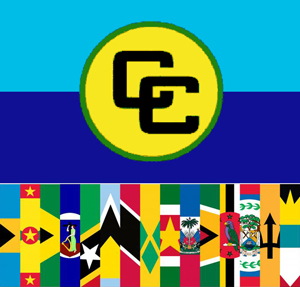
NEW YORK (FinalCall.com) – The 15-member Community of Caribbean States and Common Market (CARICOM) released a report in the first week of March stating that the 40-year-old regional integration movement could come to an end because of poor financing, dissatisfaction and the ongoing world economic crisis.
CARICOM’s Guyana-based secretariat noted that the regional bloc formed in 1973 to promote trade and close political and economic ties between member states could collapse by 2017.
“There is a danger of CARICOM collapsing but not because of external pressures so much as the weakness and lack of vision of regional political elites who are unwilling to pool their individual national sovereignty into a strong regional grouping,” said Dr. Norman Girvan, Ph.D. in economics, and professor emeritus at the University of the West Indies Graduate School of International Relations in Trinidad, in an e-mail message to The Final Call.
“Caribbean nations need to unite their efforts and their economies to promote food self-sufficiency, develop renewable energy, promote transport linkages between themselves and build trade, investment and technical cooperation with Latin America, Africa and emerging economies of Asia,” Prof. Girvan added.
A Feb. 22 announcement out of Montego Bay, Jamaica after a four-day high-level session of CARICOM transport ministers demonstrates what some observers call the “political will” needed to keep the regional bloc intact and relevant. Participants committed to providing means and support for marine environmental research, monitoring and evaluation, and maintaining ecological integrity of the marine and coastal waters of the Caribbean Sea.
Analysts say the Jamaica 2013 symposium draft resolution will determine the way forward for the marine industry. According to the resolution, the agreement of a Caribbean maritime policy shows that leaders understand the importance of maritime transport services for the movement of goods and services to the people in the region.
“The bad economic conditions are forcing political leaders towards political and economic unity–to the building of self-sustaining mechanisms based on regional industries,” said David Commissiong, a Barbados—based attorney, political activist, Pan Africanist and critic of U.S. hegemony.
He explained to The Final Call that the old developmental paradigms “have come to an end. The way forward is not less integration or less unity,” he said.
On July 4, 2012, President Desire Delano Bouterse of the Republic of Suriname speaking to heads of government of CARICOM as the outgoing chairman, said, “Unity and solidarity are the real cornerstones towards our success–unwavering solidarity and determination must be the driving force in our community as well as in our region.”
Last March, the Honorable Minister Louis Farrakhan, of the Nation of Islam, speaking at a press conference in Port of Spain, Trinidad, called for Caribbean unity in order for the region to survive.
“At this critical moment in history, the West Indies must not be marginalized,” Min. Farrakhan said. The Muslim leader also noted that Caribbean nations could not continue to seek help from international lenders such as the World Bank and the International Monetary Fund. Min. Farrakhan called for an independent Caribbean Development Bank.
A Western-controlled development bank for regional nations was downgraded twice in 2012 by Standard and Poor because borrowing governments were unable to pay their bills.
A review of the CIA Factbook for several Caribbean nations illustrates vividly Min. Farrakhan’s concerns: Jamaica with a population of 2.8 million people has an external debt of $14.6 billion; 16.5 percent of Jamaicans live below the poverty line and the unemployment rate is 14.2 percent. Youth unemployment is 27.1 percent. According to an article in Huntington News.Net, Jamaica is awaiting the approval of a new $750 million loan from the IMF.
Barbados with a population of 287,733 people has an external debt of $4.49 billion. Overall unemployment is 11.2 percent, youth 26.2 percent. Belize with a population of 327,719 has an external debt of $1.4 billion. Unemployment for youth is 19.5 percent, overall 13.1 percent and with the region’s second highest per capita income, four out of 10 people live in poverty.
Tiny Antigua & Barbuda, with a population of 89,018, has an external debt of $458 million, while youth unemployment is 19.9 percent and overall unemployment 11 percent.
How can the region with a population of over 15 million and vast natural resources such as oil, gas, diamonds, gold, bauxite, financial services, fisheries, agriculture, forestry and potential for renewable energy right itself? “What is needed?” asks Mr. Commissiong rhetorically. “CARICOM needs to rethink its direction–a need to deepen our integration in the region–needs to be a greater emphasis on developing our own structures of production,” he said.
Related news:
Obstacles not enough to thwart United Caribbean (FCN, 05-02-2012)
Caribbean, Latin American nations forge alliance (FCN, 01-23-2012)
Farrakhan urges Caribbean to unite for progress; calls for end to political disunity for good of the region (FCN, 12-20-2011)
Leader urges Caribbean to unite for progress; calls for end to political disunity for good of the region (FCN, 12-20-2011)












